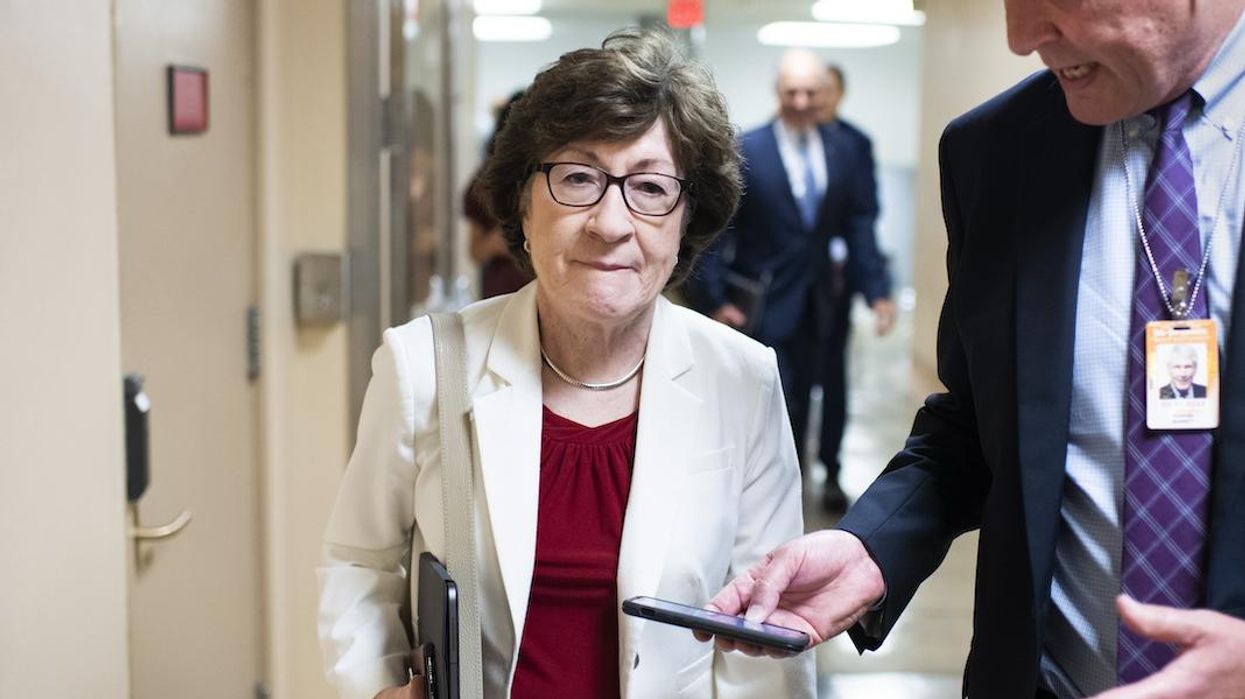Susan Collins Wonders Why She’s Blamed For Court Turn On Abortion

Sen. Susan Collins
Sen. Susan Collins (R-ME) cannot grasp why people are criticizing her for voting to confirm anti-abortion Supreme Court justices. She says she has no regrets about backing Justice Brett Kavanaugh, who she had falsely promised would preserve Roe v. Wade.
During her campaign for reelection in 2020, Collins insisted that she was in favor of abortion rights, telling Maine Public Radio in October of that year, "I am pro-choice and I've always been pro-choice. I think of this as more of a constitutional issue that was settled some 47 or however many years ago, and reaffirmed in Casey v. Planned Parenthood."
Asked about her vote for Kavanaugh's confirmation after the Supreme Court failed to block a Texas law that imposes a ban on abortions after six weeks' gestation, before many people even know they are pregnant, Collins told a Boston Globe reporter, "Why aren't you asking me do I have any regrets for voting for [Justice] Elena Kagan, who I voted for, or Sonia Sotomayor, who I voted for, or John Roberts, who I voted for?"
"I voted for three of the judges who voted to stay the law and I voted for judges who voted for the law not to be stayed and I voted against a justice who voted for the law not to be stayed," she said, noting that it is still possible the Supreme Court might someday overturn the law.
The Texas ban went into effect last month after the high court's GOP-appointed majority refused to block it, even though it clearly contradicts the nearly 50-year-old precedent set in Roe v. Wade and several other subsequent cases guaranteeing the right to abort a pregnancy before the point of fetal viability. The majority said challengers had not shown the law would cause irreparable harm.
While Collins has criticized the court's decision, she has refused to take any responsibility for it.
After Donald Trump explicitly promised as a candidate for president that he would nominate to the Supreme Court only people who would overturn Roe, Collins voted to confirm his nominees Neil Gorsuch and Kavanaugh. During Kavanaugh's contentious 2018 confirmation hearings, Collins repeatedly insisted he would preserve the abortion rights precedent.
She also voted to confirm Justice Samuel Alito in 2006, though he had previously written that the Constitution does not protect abortion rights.
Last month, she refused to back the Women's Health Protection Act of 2021, a bill that would set abortion rights protections in federal law. She argued that the bill would undermine religious liberty and weaken "conscious exceptions," a position also held by anti-abortion groups like the Heritage Foundation.
She also recently endorsed Republican former Maine Gov. Paul LePage, a notorious racist and an abortion rights opponent who moved to Florida in 2019, in his primary run for his old position, now held by pro-choice Democratic Gov. Janet Mills. "As Maine recovers from the pandemic, Paul is the best candidate to grow our economy," Collins said. "Paul is a job creator, that's his background, he's done it before and he will do it again."
In August, she voted to prohibit federal funds being used to pay for abortions.
The Supreme Court's decision in the Texas case did not explicitly overturn Roe. But the justices will consider the case of a 15-week Mississippi abortion ban in December — a possible vehicle for overruling the 1973 decision.
Published with permission of The American Independent Foundation.








